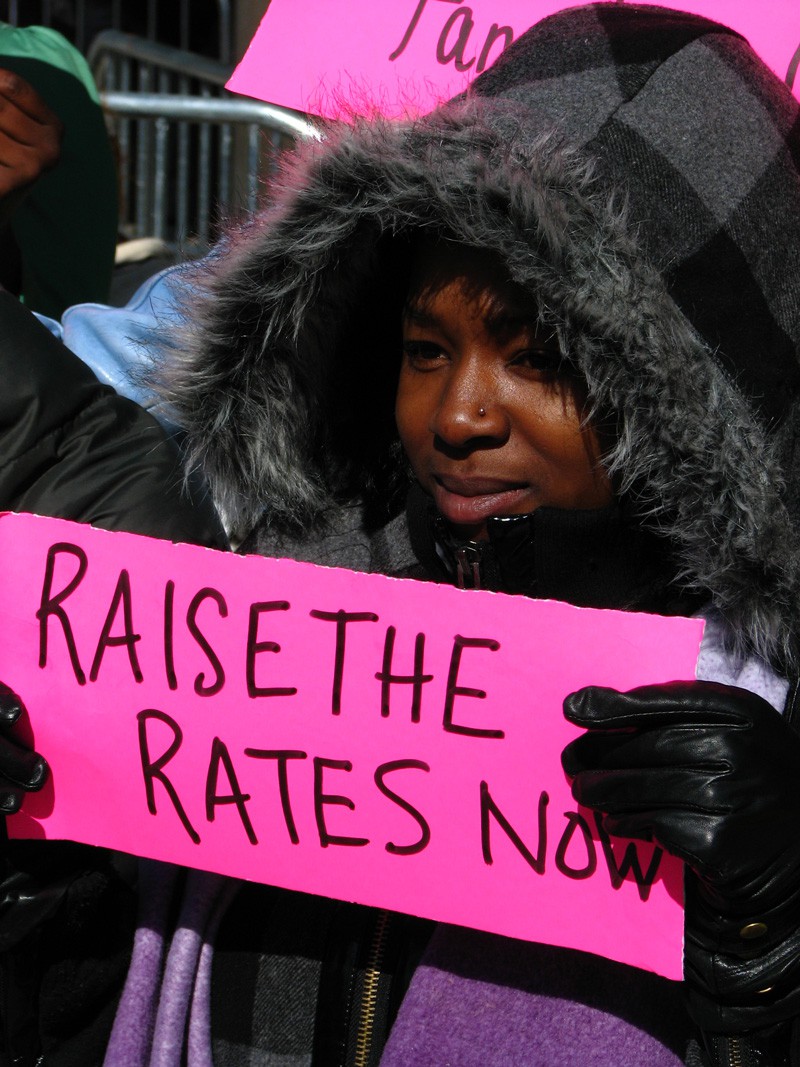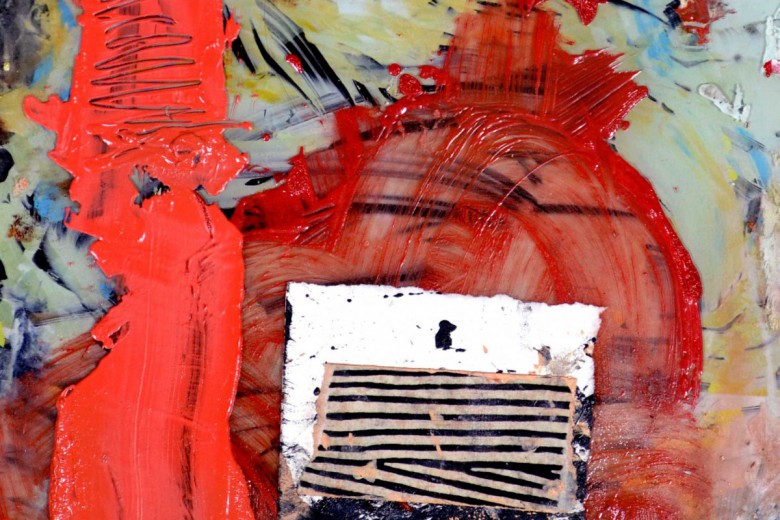
The G20 summit held in Toronto this June closed with a commitment to “fiscal consolidation” from the world’s economic leaders. Among the strongest proponents of slashing public spending was Canada’s Minister of Finance Jim Flaherty. For many of those protesting the G20 on the streets of Toronto, the subtext of Flaherty’s austerity agenda was well understood: a continuation of the attack on access to housing, health care, education and welfare, among other social necessities.
While Canada’s public face is one of a benevolent welfare state, access to basic services is becoming increasingly precarious for those on the margins of Canadian society. In this context, many grassroots organizers operate on the basis that effective social change requires community-based support work to help meet people’s immediate needs, alongside broader challenges to the social structures responsible for their oppression. Support work is not grounded in charity, but rather in an acknowledgement that a lack of material well-being is also a lack of justice. Similarly, support work is based on the understanding that poverty, marginalization and violence are not an aberration of the current system, but the products of it, and thus inherently political in nature.
Working to build self-sustaining communities capable of meeting their own material and emotional needs has long been essential to peoples’ movements, both in North America and around the world. One historical model that offers tactical inspiration to many contemporary social movements is that employed by the Black Panthers, who worked to meet the basic needs of their communities while simultaneously mounting an uncompromising fight against the systemic racism and economic oppression of black Americans.
Reflecting on the Panthers’ Free Breakfast for Children programs and sickle-cell anemia clinics, former Black Panther Ashanti Alston states that “a peoples’ movement needs to be grounded in working with the people. That’s the most important thing I learned from the Panther days. It must come from the people, and be based on supporting one another. When you think of the Panthers, you get the image of confrontations with the government and with police, but our most important work was community work.”
Alston stresses the need for movements geared toward social transformation to go beyond this community work, however. “Activists today understand so much more than we did about the interconnections of different forms of oppression, but there is less of a desire to change this system at its roots. We were clearer back then that this system had to go. We broke the law, if that’s what our people needed. Legalities can’t direct our movements.”
This balance between community support work and militant challenges to the structural roots of marginalization continues to serve as a model for social justice work today. The Ontario Coalition Against Poverty (OCAP), as well as Montreal’s Solidarity Across Borders (SAB) and the Collective Opposed to Police Brutality (COPB), are three examples (among many) of groups committed to radical social transformation, while at the same time addressing the immediate needs of community members facing poverty, homelessness, police violence or deportation.
The Ontario Coalition Against Poverty
The Ontario Coalition Against Poverty is a group of poor people and their allies that was founded in 1990, and is best known for highly publicized direct action campaigns against poverty, homelessness and gentrification. In addition to these high-profile actions, OCAP engages in ongoing support work to defend the rights of individual people against landlords, employers and government officials.
According to John Clarke, a founding member of OCAP, this combination of individual casework and more militant direct action is a deliberate strategy. “If you’re planning an action to stop a welfare cut from happening, people will have infinitely more confidence if you can make sure that their electricity doesn’t get cut off.”
Referring to a common OCAP tactic in which a delegation of poor people and allied activists storm a welfare office to collectively address an individual grievance, Clarke explains that “when the mobilizing strength of a community is used to win redress, not only is it an effective strategy practically, but it also has the effect of providing people with a form of organization that allows them to generalize their struggles into larger goals that benefit the community as a whole.” Direct action and support work go hand-in-hand in overcoming isolation, and enable effective political action.
Solidarity Across Borders and No One is Illegal
Jaggi Singh, a member of Solidarity Across Borders and No One Is Illegal — Montreal, has been an active organizer in migrant justice movements in Montreal for over 10 years. He sees direct action and support work as one and the same. “When SAB is supporting people who are facing deportation by organizing a demonstration, disrupting the immigration minister, or providing networks of support in housing, child care, health care, and education, these are all forms of direct action. They break isolation and effect change in a way that enables people to take control of their lives.”
Singh differentiates the support work of groups like SAB, which is based on self-determination, from the “service-client” model of government and many non-governmental organizations. While SAB offers many kinds of support that are similar to formal services (though typically those that are underfunded or unavailable, particularly to those without citizenship status), support work is done under the leadership of those directly affected.
To Singh, support work is not just about meeting people’s needs, it’s about how they are met. “Dignity is about people being able to respond to injustices in a way that is consistent with their own vision and self-determination. It’s about refusing to accommodate our fight to the prescribed channels of the system.”
By way of example, Singh highlights the struggle to stop the deportation of thousands of non-status Algerians in Montreal between 2002 and 2007. While No One is Illegal (NOII) worked on individual refugee claims, members also supported the broader goal of the Committee of Non-Status Algerians to demand status for all of those affected, rejecting the state’s division of migrants into those deserving and undeserving of status.
Sarita Ahooja, a long-time migrant justice and indigenous solidarity activist in Montreal, is also an organizer with SAB and NOII. A veteran of both formal and informal support work, she says that “once you understand how the capitalist system functions, you can empower people to first survive that system, and secondly to defy it. Finally, the most important step is to implement alternatives to that system.” Ahooja adds that unlike government and NGO service provision, community-based support work is grounded in a holistic commitment to challenging the sources of displacement and forced migration. “Support work does not push for legislative change or social reform. It is done as part of a long-term struggle for a radical restructuring of society.” The fact that groups such as SAB are not bound to the dictates of funders, which limit or preclude the possibility of fundamental social transformation, is of critical importance in this regard.
The Collective Opposed to Police Brutality
The Collective Opposed to Police Brutality (COPB), based in Montreal, does advocacy and casework for people who have been victims of police violence, in addition to organizing an annual demonstration for the International Day Against Police Brutality on March 15. François du Canal, who was active with COPB for most of the past decade, stresses that it is COPB’s ongoing support for people who have experienced police violence that makes the annual demonstration so powerful. Though it is the demonstrations that are most publicized, du Canal emphasizes that this is a small part of COPB’s work. COPB’s organizing ranges from delivering “know your rights” workshops, to providing resources and support to those who approach the group with complaints of police violence, unfair tickets, false charges and other forms of social and racial profiling by police.
COPB has a history particularly rife with police repression due to their hardline stance against police brutality, as well as their refusal to denounce the varied ways that victims of police violence express their resistance. This comes at a cost. Organizers have been targeted, followed and intimidated by police, and their annual March 15 demonstrations invariably result in anywhere from several dozen to several hundred arrests.
Overcoming criminalization
Needless to say, COPB is not the only group that faces political repression. Arrests on politically-motivated charges are commonplace among groups like OCAP and SAB, and the ensuing court battles often span several years — consuming valuable time and resources, and draining the capacity of activists to continue the day-to-day work of community organizing. Many of those facing the most serious charges surrounding the recent G20 protest in Toronto are well-known activists with a long history of community organizing. These arrests are clearly political in nature, and demonstrative of the criminalization of dissent.
Ashanti Alston recollects similar experiences with police repression and court battles that drained organizers, both financially and emotionally, but delivers a final note of support to those engaged in present-day movement building:
“People today have to accept that it’s going to be hard. And they’ve got to accept that the more successful their community support is, the more the system will try to shut them down. They will do anything they can to set you up, to frame you, to murder you. And if you can’t accept that, you will remain locked into a certain kind of “˜activism.’ This system is vicious; you need to sustain yourself, and to show people that it’s possible not only to resist, but to support each other and create the new world that we want.”




_780_520_90_s_c1.jpg)

